In 2003, we decided to spin out our quickly growing IT department and incorporate it into an independent software engineering firm – BESITEC (short for Bertling EDI Service & IT GmbH).
While their initial focus was to further improve our transport management system, BESITEC has now grown into an independent technology company, which offers individual software solutions, innovative EDI and programming interfaces as well as system planning and administration services.
Since its foundation more than a decade ago, BESITEC has played a defining role in the technological development of the logistics industry, and today, its systems enable globally leading project freight forwarding companies to handle large-scale logistics projects every day in a highly efficient way.
Therese Strootmann
Head of Digitalization
P: +49 40 323355 33M:+49 162 2323910
E: therese.strootmann@bertling.com
Whether you would like to implement automated connections between you and your business partners, modernize your fleet, plan and install a new IT infrastructure or need individual software that is tailored to your needs, BESITEC uses their vast experience in the field to be a reliable partner at your side.

Transport Management Software
The industries' requirements on IT services become more and more sophisticated.

SUPPLY CHAIN VISIBILITY IN EVERY LINK
BLU4U is accessible 24/7 a week and the user interface of the tracking & tracing app...

Eco-Footprint Tracking
With our Ecological Footprint Tracker you will be able to calculate your CO2 footprint and all shipment-related..

Digitalization
at Bertling
The advancing digitalization of global markets and processes challenges companies and industries to...
The interaction between IT and Logistics has never been more important and demanding. Seamless reporting, real-time information, and subcontractor management are managed through Bertling's reliable, secure and high-standard network and server architecture. In this way, downtimes due to machine failures, virus attacks, and slow communication lines in Bertling's global operations are kept to a minimum. More about the technical key facts
IT-SECURITY AT THE HIGHEST LEVEL - ISO 27001
We take security very seriously and this certification reflects our commitment to keeping our data, and especially our customers' data, always secure. This was recently demonstrated by Besitec's ISO 27001 certification. Besitec is our in-house IT division.
ABOUT THE ISO CERTIFICATION
ISO/IEC 27001 is the leading international standard for information security management systems (ISMS) and thus the most important cybersecurity certification.
With this ISO certification we demonstrate our commitment to security of information, data, and system at Bertling Logistics, in our global offices, for our global clients and worldwide transports. In doing so, we rely on resilient information technology, and we prove a strong awareness of cyber risks.
In addition to that, we do have clear guidelines for planning, implementing, monitoring, and improving our ISMS, considering the context of an organization. Click here to read more about this topic.
Tailor-fitted solutions for each client and project
"One-size-fits-all" hardly ever works, especially in project logistics. Every project has different demands, depending on the type of project, the parties, and the systems involved, and of course the scope of work. Bertling considered this when it designed BLU. Consequently, Bertling has divided system interfaces and screens into "standard" and "project-specific". This allows us to add project-specific data fields wherever needed while maintaining the basic concept based on Bertling's existing standards.
This allows Bertling to cater to the projects' requirements with regard to Purchase Order Management, Tracking Interfaces with BLU4U, Reports, and EDI-set up and enables it to efficiently implement the required features.
Up and down the transport chain
Another key factor in Bertling's concept of "flexible standardization" is the construction of the transport chain. A transport basically consists of cargo that is going through a chain of events; for example - pick up of cargo, packing cargo, the departure from the port of loading, and the arrival at the port of destination. All of these events together make up the transport chain.
These events are split into "standard events" which are part of every transport and "project-specific events" - events that are of particular interest to a specific project - for example, "shipment release", "transshipment", "custom clearance", etc. Therefore, the transport chain in Bertling's system contains the standard events but provides flexibility by allowing additional events to be added to the transport chain, according to the project or client requirements.
Every event, standard or specific, contains the same set of data:
- Type of event
- Mode of transport
- Carrier name
- Location
- Address
- References
- Vessel/flight no/truck no
- Planned date
- Actual date
This enables Bertling to easily record and monitor every event that the project/client requires and make them available via our the BLU4U Tracking interface.

